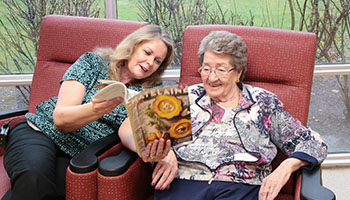There are many strategies and resources that can help you take care of your own health and enjoy life all while giving your loved one the highest level of care.
Caring for an ill or disabled loved one is one of the most noble and rewarding things you can do. It can also be one of the most stressful—physically, mentally and emotionally. There are, however, many strategies and resources that can help you take care of your own health and enjoy life all while giving your loved one the highest level of care.
Warning Signs of Burnout
You may be experiencing early stages of burnout if you:
- Often feel exhausted or have low energy
- Start to neglect your own needs because you are too busy or no longer care
- Notice your life revolves around caregiving but it gives you little satisfaction
- Have trouble relaxing, even when help is available
- Feel more impatient and irritable with the person you are helping
- Feel overwhelmed, helpless and hopeless
If you start to notice any of these signs, find ways to take a break from caregiving, seek out extra support and follow the tips for avoiding burnout.
Strategies
Here are some simple strategies you can use to lesson your load and find more balance in your day-to-day life:
- Know your limits
- Take time for yourself
- Ask for and accept help
- Find support
- Maintain a healthy lifestyle
- Laugh
Also, remember to support independence — be open to ideas that can give your loved one more leeway and reduce the amount of direct care they need.
As a reminder, I facilitate a monthly spousal support group. If your spouse is living in long-term care at McCormick Home or elsewhere in the community and you are looking to join, please contact home@mccormickcare.ca.
By Joanne Nancekivell, McCormick Home Social Worker
